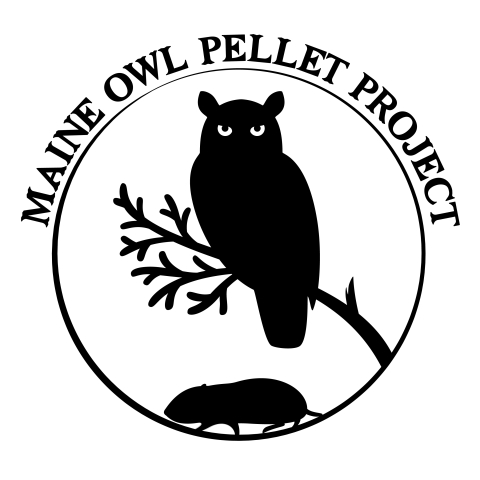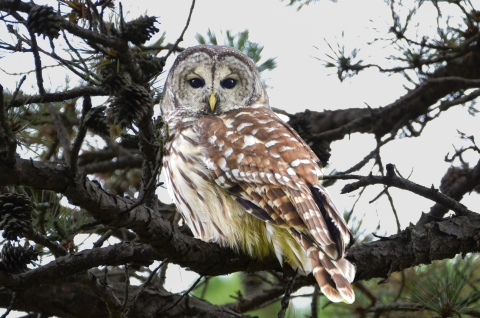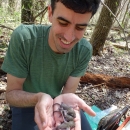The Maine Owl Pellet Project is a collaboration between the University of New England, the Maine Department of Inland Fisheries and Wildlife, and the United States Fish and Wildlife Service that aims to engage the public and promote crowdsourced science to better understand the diet of Maine's owls, the distribution and composition of the small mammal community on which they prey, and the threatened northern bog lemming to inform conservation efforts.
With funding support from the Maine Outdoor Heritage Fund, beginning in 2023 the project will focus on accomplishing its objectives including the challenge of detecting the presence of the state-threatened northern bog lemming (Synaptomys borealis), a small, brown rodent that is native to Canada and the northern United States, including the state of Maine. It is listed as a state species of special concern and is found in wetland habitats, including bogs, fens, marshes, and swamps, where it feeds on a variety of vegetation. Very little is known about the biology and ecology of the northern bog lemming due to its small size, elusive behavior, and limited distribution.
To study the diet of Maine's owls and the distribution and composition of the small mammal community on which they prey, the Maine Owl Pellet Project will also engage community scientists across the state to collect and submit owl pellets for analysis. Owls are carnivorous birds of prey that hunt a variety of animals, including small mammals, birds, amphibians, and invertebrates. They swallow their prey whole and later regurgitate indigestible materials such as bones and fur in the form of pellets. These pellets, which usually contain small mammal bones, provide a detailed record of what the owl has eaten and can give us a snapshot of the small mammal community living near where the pellet was found. Submitted pellets will be analyzed using DNA metabarcoding and morphological identification techniques to determine the species of owl that produced the pellet, and the prey remains contained within.
Aside from the valuable scientific information gained, a major goal of the Maine Owl Pellet Project is to encourage public participation in community science and raise awareness about the importance of understanding the ecology and conservation of owls and their prey in Maine. Community scientists of all levels of experience, from professional biologists to the public, are encouraged to collect and submit owl pellets for analysis. By participating in the Maine Owl Pellet Project, participants will advance their understanding of owl ecology and conservation in Maine and contribute to important scientific research.




